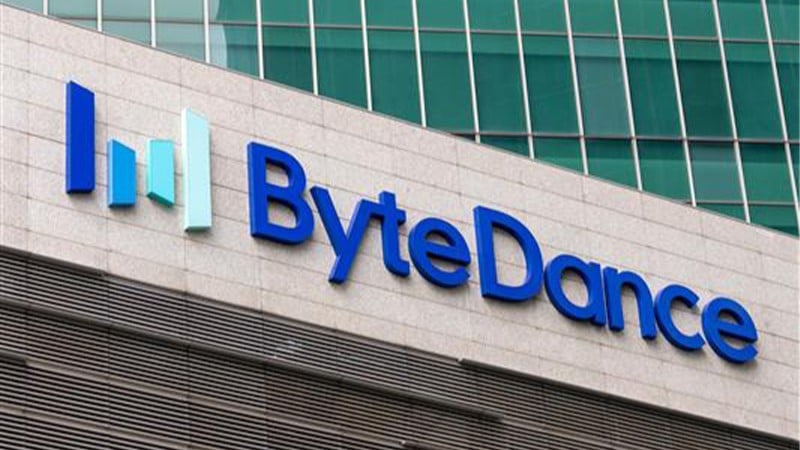April 2020
Article
Bringing the freight industry up to speed
Claire Shaw – Portfolio Director
The antiquated freight industry is set for a shake up as new tech-savvy players look to take a slice of what is a €5.6 trillion, and growing, industry

This article was written before the coronavirus disease (Covid-19) became a global pandemic. As the current situation unfurls, the importance of maintaining a strong and efficient logistics chain is all the more apparent. In these unprecedented times, making the best use of the latest technology and digital tools will be key to maintaining the integrity of the system as a whole, ensuring medical supplies and goods get to wherever they are needed most.
The value of shares in Scottish Mortgage, and any income from them, can fall as well as rise and investors may not get back the amount invested.
The antiquated freight industry is set for a shake up as new tech-savvy players look to take a slice of what is a €5.6 trillion, and growing, industry. The incumbents had better watch out, because logistics, specifically global trucking in the first instance, is going digital. If the existing players are not prepared to adapt their operations to embrace technology, they could find themselves left at the side of the road.
Since logistics is all about organising complex operations, you might have expected the industry to be highly efficient, deploying the latest technology and digital tools to transport goods across the globe. But far from it. The logistics industry depends heavily on relationships – people sending emails, faxes and making calls – and so it remains an antiquated, paper-and-pen industry that is very people-intensive. Little has changed since the advent of digital, getting goods from A to B still involves companies cold calling prospective carriers to obtain a freight quote, a frustrating process that can take upwards of a few hours, sometimes a whole day, to secure a deal. Unsurprisingly, this level of inefficiency in what is a large, lucrative industry has not gone unnoticed. New tech-savvy players are entering the market with innovative solutions that will reconfigure the global trucking market and leave unprepared incumbents high and dry. Two markets already feeling the positive effects of technology are the US and China.
On the open road
Trucking is a huge business in the US – $800 billion is spent annually on trucking services, with 80% of every dollar spent on moving freight going on trucking. The trucker is one of America’s enduring folk heroes, a valiant and solitary entrepreneur, braving both weather and fatigue to make sure their deliveries get there on time. The reality is somewhat less glamorous: a truck driver is often a small business owner, one that spends half their time driving a near empty truck, the other half trying to secure further business and work out the most economical route to their next destination. Against this backdrop, the digital freight brokerage platform, Convoy, founded by ‘ex-Amazonians’ Dan Lewis and Grant Goodale, is taking advantage of the latest technology to link up freight carriers with customers.
As Convoy’s founder and CEO Dan Lewis states, “we are at a pivotal moment in freight”. Until now, getting a package from factory to distributor and then on to the customer has been a complicated affair, requiring anything up to a dozen companies and an equally baffling amount of paperwork and digital documentation. Convoy’s solution takes a lot of the friction out the system. Machine learning and automation allows shippers and carriers to connect instantly, without having to resort to the phone or faxing.
Whether it was by fortune or foresight, Convoy’s timing to the market was ideal. The 2015 launch of the company coincided with the point at which most truckers had a smartphone with them in their truck, the days of CB ‘citizens band’ radio, a land mobile radio system, as the trucker’s main channel of communication has gone, connection is only ever a mobile phone away. And with Convoy’s apps, the increase in transparency is good for both parties. Drivers can bid automatically for loads, they submit their bills through the app and thus are paid more promptly, whereas the shipper can post a job, get real-time quotes and track its shipments to their final destinations.

But it’s environmental sustainability that is at the heart of Convoy’s mission and the company is already making progress toward reducing carbon emissions. To date, its ability to bundle shipments into a single job for a driver means its automated reload program has reduced ‘empty miles’ from the industry standard of 35% to 19%. Empty miles are the miles travelled without a load, where the freighter is not only without pay, but is emitting carbon emissions. If the US industry as a whole was to follow Convoy’s lead, it would reduce CO2 emissions by 32 million metric tons.
From Chalkboard to Smartphone App
The US $800 billion trucking industry is equally fragmented and disorganised in China. The market mainly consists of individuals who own their own trucks. These individuals get work from brokers who work from booths at logistics parks or from shippers with whom they have an established relationship and turn to in the hope of finding regular work. Akin to the US, the market is hugely opaque and deeply inefficient – the logistics parks are scattered around China, where truckers typically crowd around brokers’ chalkboards, shouting out their bids to secure their next assignment. Environmentally sustainable it isn’t. On average, truckers travel 160 kilometres to a logistics park. Once there, they typically spend more than a day finding the right job and haggling over the price, before travelling a further 190 kilometres, on average, to their pick-up point. This process can take days, during which time the trucker is not earning revenue, but is still spending money to cover fuel and toll charges.

As in the US, a new entrant is challengeng the status quo. Full Truck Alliance (FTA) – also known as Manbang Group – has similarly turned to technology to shake up this outdated industry, again connecting shippers and truckers through a smartphone app. Despite only being established in 2017 on the merger of two rival entities, Huochebang and Yunmamman, FTA has quickly secured a 90% market share in the online matching of truckers and shippers. This amounts to 5.5 million truck drivers that are using FTA to find their next job.
The company is not stopping there. FTA also believes it is well placed in the future to roll out driverless trucks at scale in China. Trucks, be they driverless or otherwise, are only valuable if the operator has access to goods to fill them up, something obviously that FTA’s matching capabilities gives it. Plus, there is a compelling argument that long-haul trucks will be one of the first areas where autonomous vehicles are widely adopted, owing to the relative simplicity of ploughing along a highway relative to the messy complexity of urban driving. Whether FTA deploys its own driverless trucks or finds others to finance the company remains to be seen, but the potential impact on the economics of long-distance transportation of goods, and by extension its business model and opportunity set, could be profound.
On the horizon
There is much that can be done to make the business of moving goods and people around the world more efficient and sustainable. The shifts taking place in the logistics industry are just the first indicators of the changes that are on the horizon for the transport industry more broadly. From the rise of autonomous vehicles, which will change the cost structure and utilisation of trucks and cars alike, to asset sharing unlocking unused capacity, to the use of data and analytics to forecast demand and optimise routes, all these efficiency gains will have profound repercussions for those who are slow to embrace new technologies in their operations. Until such times, the pace of adoption and the extent to which the digital freight networks can take share from their pen-and-paper based peers will largely be dictated by how far Convoy and FTA succeed in convincing both shippers and truckers that they can add value by eradicating empty miles.
Risk factors
The trust has a significant investment in private companies. The trust’s risk could be increased as these assets may be more difficult to sell, so changes in their prices may be greater.
The trust invests in emerging markets where difficulties in dealing, settlement and custody could arise, resulting in a negative impact on the value of your investment.
The trust invests in overseas securities. Changes in the rates of exchange may also cause the value of your investment (and any income it may pay) to go down or up.
About the author - Claire Shaw
Portfolio Director
Claire Shaw is a portfolio director and plays a prominent role in servicing Scottish Mortgage’s UK shareholder base. Before joining in 2019, she spent over a decade as a fund manager with a focus on managing European equity portfolios for a global client base. With a background in analysing companies and communicating investment ideas, Claire is also responsible for creating engaging content that makes the Scottish Mortgage portfolio accessible to all its shareholders. Beyond that, she works closely with the managers, meeting with portfolio companies and conducting in-depth portfolio discussions with shareholders.
Important information
This communication was produced and approved at the time stated and may not have been updated subsequently. It represents views held at the time of production and may not reflect current thinking.
This content does not constitute, and is not subject to the protections afforded to, independent research. Baillie Gifford and its staff may have dealt in the investments concerned. The views expressed are not statements of fact and should not be considered as advice or a recommendation to buy, sell or hold a particular investment.
Baillie Gifford & Co and Baillie Gifford & Co Limited are authorised and regulated by the Financial Conduct Authority (FCA). The investment trusts managed by Baillie Gifford & Co Limited are listed on the London Stock Exchange and are not authorised or regulated by the FCA.
A Key Information Document is available by visiting our Documents page.
Any images used in this content are for illustrative purposes only.









